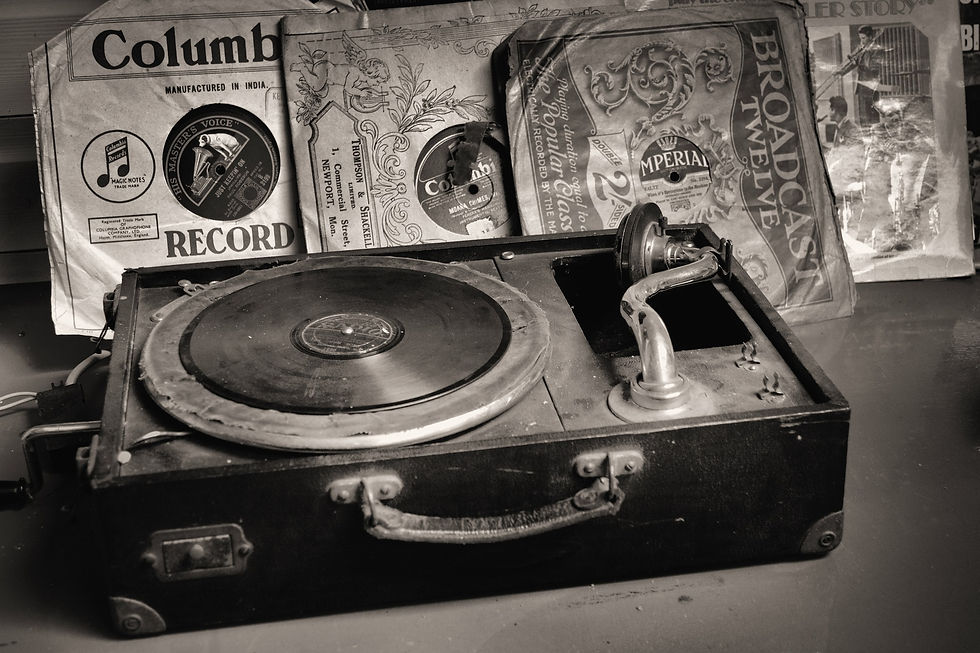MUSIC AND MEDIUMSHIP
- Quintin John Graham

- Dec 14, 2024
- 3 min read

People often say meditation is the key essential foundation for becoming a good psychic medium, claiming that without it, connecting with Spirit is impossible.
While I agree that meditation - or what I prefer to call "quiet time" - is important, I find my own approach works best for me. As a Virgo, I naturally tend toward anxiety, overthinking, and a sharp eye for detail. Taking time to breathe deeply, relax, and let go of stress helps me feel calm and grounded, which is not only good for my health but also essential for connecting with Spirit.
When I manage to quiet my mind - which is often racing like a high-speed train - the calmness spreads through my entire being. This stillness opens the door for me to "hear," "see," "feel," and "sense" what Spirit wants to share. Meditative techniques are wonderful tools for this connection, and I am a big advocate for them.
That said, there is another method I use regularly - and always before a reading - and that is listening to music.
The Role of Music in Mediumship
A few years back, I was introduced to a different way of preparing for mediumship readings: listening to music as a way to elevate my energy to Spirit's frequency. Initially, I was skeptical. My quiet meditative routine had been working perfectly fine, and it is what most experts recommend. Still, I decided to give it a try because mediumship is all about raising your energy to meet Spirit halfway (since Spirit lowers theirs to meet us).
What I discovered was transformative beyond my wildest imagination.
Music has a unique ability to quiet mental chatter and bring you into a positive, energized state. It lifts your mood, gets you moving, and helps you feel deeply connected to your own spirit. And when you are in tune with yourself, it becomes much easier to connect with Spirit.
Sometimes, during these connections, you may find yourself with several spirit guides communicating simultaneously. It can feel overwhelming to figure out who is saying what. This is where music becomes especially helpful.
By practicing active, focused listening, music teaches you to distinguish between various layers of sound and vibration - skills that directly translate to working with Spirit and guides, who each have their own distinct “frequency.”
How to Use Music to Enhance Your Connection
To start, choose a piece of instrumental or classical music you enjoy, ideally one with a wide range of instruments. Use headphones or earbuds and listen without interruptions. As you listen, focus on identifying the individual instruments and how they blend into the whole. Notice how certain sounds or moments resonate with you emotionally or physically.
Classical compositions, even instrumental movie soundtracks in particular, are full of intricate vibrations and layers that communicate feelings, stories, and even a sense of adventure. Similarly, spirit guides often use vibration to convey emotions or ideas. By training yourself to notice these details in music, you will become better at recognizing subtle messages from your guides.
This skill is especially useful when working with multiple guides or spirit teams. Just as you learn to pick out a single violin or flute from an orchestra, you will be able to focus on one guide’s energy amidst a group.
The Power of Deep Listening
Most of us listen to music casually, letting it fade into the background. But deep listening is different. It involves paying close attention to every note, every shift in tone, and every fleeting moment that might otherwise go unnoticed.
This practice mirrors the experience of connecting with Spirit. Guides may offer subtle hints or impressions that are easy to miss if you are not fully present. Deep listening to music helps you develop the patience and awareness needed to catch those messages.
So, whether you are preparing for a reading or simply looking for a new way to connect, consider adding music to your spiritual routine. It might just open up a whole new world of connection and insight.
The information contained above is provided for entertainment purposes only. The contents of this article are not intended to amount to advice on your personal situation and you should not rely on any of the contents of this article. Professional advice should be obtained before taking or refraining from taking any action as a result of the contents of this article. The Writer and this Website disclaim all liability and responsibility arising from any reliance placed on any of the contents of this article.



Comments